collective embodiment
-
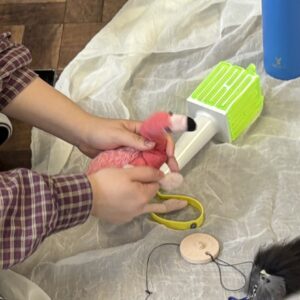 Object Theater is an extension of Theatre of the Oppressed that scrutinizes technology-mediated oppression and its symbolic and sensitive dimensions. Building upon the dramatic games developed by Augusto Boal that already engage everyday objects, Object Theater elevates the practice to a full-blown technique, including the possibility of generating an interactive play, similar to the Image […] - Feb 26, 2026
Object Theater is an extension of Theatre of the Oppressed that scrutinizes technology-mediated oppression and its symbolic and sensitive dimensions. Building upon the dramatic games developed by Augusto Boal that already engage everyday objects, Object Theater elevates the practice to a full-blown technique, including the possibility of generating an interactive play, similar to the Image […] - Feb 26, 2026 -
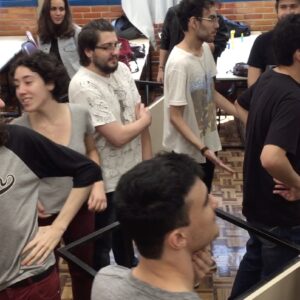 Algorithms are mathematical and logic structures that sort, transform, and create information in computers and, increasingly, in society. Algorithms change human-to-human interactions in ways that are difficult for users to understand. Most people cannot grasp algorithms implications to everyday life solely by reading academic papers or, even less, by reading source code. Embodied algorithm helps […] - Feb 14, 2026
Algorithms are mathematical and logic structures that sort, transform, and create information in computers and, increasingly, in society. Algorithms change human-to-human interactions in ways that are difficult for users to understand. Most people cannot grasp algorithms implications to everyday life solely by reading academic papers or, even less, by reading source code. Embodied algorithm helps […] - Feb 14, 2026 -
 Pixelated Dreams is a collaborative surrealist game designed to help people grasp the stable diffusion algorithm behind generative AI such as DALLE, MidJourney, and others. As an embodied algorithm simulation, the game turns an invisible computational process into a physical, social activity where players collectively perform the roles normally executed by a machine using their […] - Feb 14, 2026
Pixelated Dreams is a collaborative surrealist game designed to help people grasp the stable diffusion algorithm behind generative AI such as DALLE, MidJourney, and others. As an embodied algorithm simulation, the game turns an invisible computational process into a physical, social activity where players collectively perform the roles normally executed by a machine using their […] - Feb 14, 2026 -
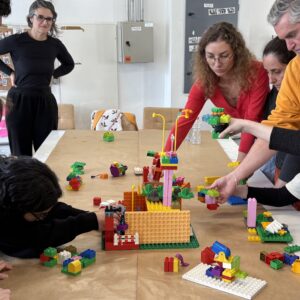
Critical consciousness in Prospective Design
Prospective Design is a field of research opened by researchers from the Graduate Program in Prospective Design (PPGDP) at UTFPR, of which the proponent is one of the founders. Since 2019, the proponent has been conducting participatory workshops with faculty, students, and others interested in what would become PPGDP. The workshops are being recorded in […] - Feb 6, 2026 -
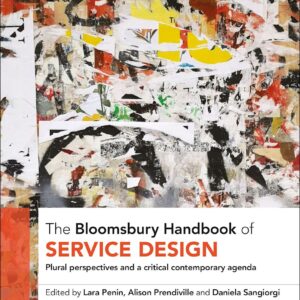
Collective embodiment in service interfaces
Van Amstel, Frederick M. C. , and Fernando Secomandi. (2025) Collective Embodiment in Service Interfaces. In Penin, L. de S., Prendiville, A. and Sangiorgi, D. (Eds), Bloomsbury Handbook of Service Design: Plural perspectives and a critical contemporary agenda, 305–316. London New York: Bloomsbury Visual Arts, 2025. - Jan 22, 2026 -
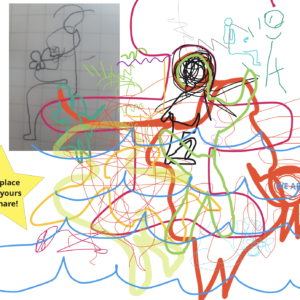
The Relational Becoming of a Participatory Design Commoner
Marttila, S., van Amstel, F., Saad-Sulonen, J., Botero, A., Poderi, G., Teli, M.,and Commoner, P.(2025) The Relational Becoming of a Participatory Design Commoner, in Brandt, E., Markussen, T., Berglund, E., Julier, G., Linde, P. (eds.), Nordes 2025: Relational Design, 6-8 August, Oslo, Norway. https://doi.org/10.21606/nordes.2025.22 - Jul 25, 2025 -

Systemic userism in service design
Abstract: Userism in service design manifests as a group of humans reduced to be users (and only users) of a given service. Userism prevents these people from cocreating, codesigning, and coproducing services. Transnational (often colonialist) digital services are a case in point; however, userism also appears in analog interfaces. The systemic aspect of userism refers […] - Nov 25, 2024 -
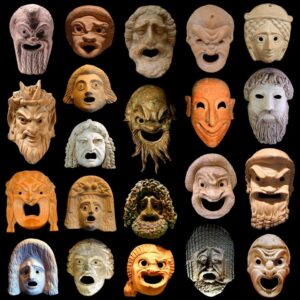
Decolonizing Service Design Ethics and Aesthetics
Abstract: Service Design draws heavily from ancient Greek Ethics and Aesthetics, beginning with the foundational theater metaphor that separates frontstage from backstage. When Service Design engages with cultures that do not cultivate the Greek canon, the decolonization challenge comes to the fore. People who work to decolonize their cultures wonder whether Service Design will remain […] - Apr 15, 2024 -

The Materials of Service Design: Human bodies
Secomandi, F., & van Amstel, F. (2023). Human bodies. In: Blonkvist, J; Clatworthy, S; Holmlid, S. The Materials of Service Design (pp. 167-172). Edward Elgar Publishing. https://doi.org/10.4337/9781802203301.00032 - Feb 5, 2024 -
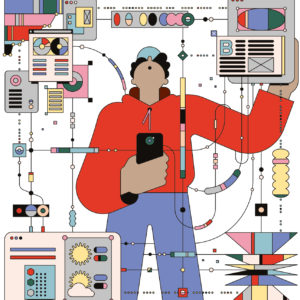
Dancing Algorhythms in the Theater of the Techno-Oppressed
Presentation in the College of the Arts Fall 2023 Research Lightning Round, University of Florida. Abstract: Algorhythms are computer instructions that display recurrent logic and rhythm. They are introduced in our everyday life through digital technologies to structure our activities. The Theater of the Techno-Oppressed is a research program aimed at exploring the role of […] - Dec 14, 2023 -
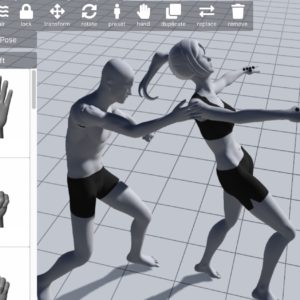 Image theater is the most popular and accessible Theater of the Oppressed technique. It consists of telling an oppression story through a static body image. The spect-actors stand in postures that, altogether, suggest an oppressive action. There is no voice, explanation or movement in the image, although that can be added later for further inquiries […] - Sep 20, 2023
Image theater is the most popular and accessible Theater of the Oppressed technique. It consists of telling an oppression story through a static body image. The spect-actors stand in postures that, altogether, suggest an oppressive action. There is no voice, explanation or movement in the image, although that can be added later for further inquiries […] - Sep 20, 2023 -
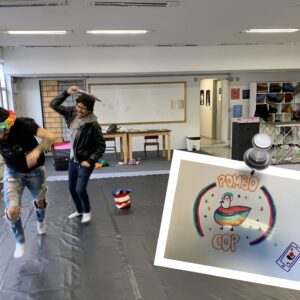
Making work visible in the theater of service design
Capitalist service design is grounded on a theater metaphor that guides service designers to make work invisible, away from customer scrutiny and public accountability. In this way, service design contributes to hiding the extreme work exploitation that digital service workers undergo, generating a situation where workers can only reclaim their visibility through striking. If service […] - Feb 24, 2023 -
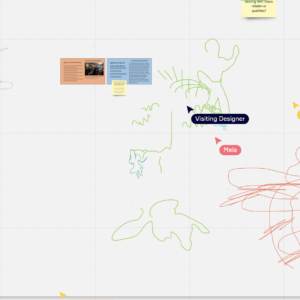
Assembling collective bodies to take care of the commons
As part of the Participatory Design Conference 2022, I joined P.D. Commoners, a self-managed collective of researchers working at the boundaries of commoning and designing, to organize a workshop on Relationality, Commoning, and Designing. After the workshop, we recorded a podcast with Joanna Sad-Sulonen and Giacomo Poderi to summarize and share the workshop experience with […] - Jan 11, 2023 -
 Forum Theater provides a forum to test and rehearse actions and responses to oppressive situations in the form of an interactive play. What differentiates Forum Theatre from other interactive theatre techniques is precisely its political goal of human and social emancipation. By stimulating the spectator’s effective intervention, Forum Theatre seeks to provoke reflections about the forms of […] - Apr 17, 2022
Forum Theater provides a forum to test and rehearse actions and responses to oppressive situations in the form of an interactive play. What differentiates Forum Theatre from other interactive theatre techniques is precisely its political goal of human and social emancipation. By stimulating the spectator’s effective intervention, Forum Theatre seeks to provoke reflections about the forms of […] - Apr 17, 2022 -
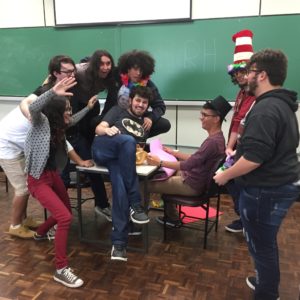
Design pedagogy, the body, and solidarity in designing commons
Podcast interview for the Commoning Design & Designing Commons show, an initiative from the Interest Group Commons and Commoning of the IT University of Copenhagen. Listen to the podcast on Anchor. Transcript Speaker Key – GP Giacomo Poderi; FA Frederick van Amstel; SM Sanna-Maria Marttila; JS Joanna Saad-Sulonen Speaker Text GP Okay, welcome to this first […] - Apr 12, 2022 -
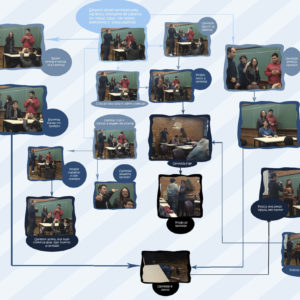 Reaction to computer-mediated oppression can be rehearsed in a Theater of the Techno-Oppressed session. When using the image theater technique, it is possible to capture every attempt to react to oppression and compare their efficacy in still photos. In addition to the spect-actors who stage the play, two persons are required: a photographer and a […] - Mar 27, 2022
Reaction to computer-mediated oppression can be rehearsed in a Theater of the Techno-Oppressed session. When using the image theater technique, it is possible to capture every attempt to react to oppression and compare their efficacy in still photos. In addition to the spect-actors who stage the play, two persons are required: a photographer and a […] - Mar 27, 2022 -

Artificial Intelligence in Higher Education (2021)
Instead of delivering an invited talk in the UTFPR’s Informatics student week of 2021, Rodrigo Fresse Gonzatto, Claudia Bordin Rodrigues, and Frederick van Amstel performed an invisible theater on artificial intelligence in higher education. In this kind of performance, actors stage the play without telling the audience that they are acting. They pretend to be […] - Oct 4, 2021 -
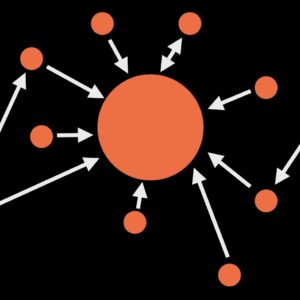
Relational design and the contradiction of oppression
Una charla en la sesión 8 de la Cátedra Diseño, Arte y Ciencia acogida pela Facultades de Artes y Diseño y de Ciencias Naturales e Ingeniería de la Universidad Jorge Tadeo Lozano (Colombia). Abstracto: El Diseño Relacional es una transformación profunda en la teoria y practica del diseño, en que se pierde el objeto para […] - Sep 21, 2021 -
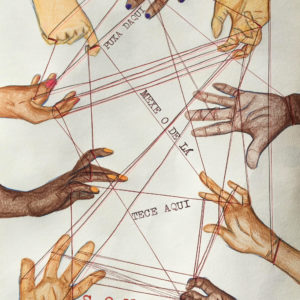
Monster aesthetics as an expression of decolonizing the design body
Angelon, Rafaela and Van Amstel, Frederick M.C. (2021) Monster aesthetics as an expression of decolonizing the design body. Art, Design & Communication in Higher Education, 20(1), pp. 83-102(20). https://doi.org/10.1386/adch_00031_1 - Jun 9, 2021 -
 This panel conversation was recorded at Uroboros 2021 Festival. It explores the possibility of returning to the wild, or bringing the wild back to human creative practices. Frederick contributed with comments on using this concept to decolonize design and art from domesticated attitudes, based on body discrimination and hierarchies. At 31:30, he performs a cat […] - May 17, 2021
This panel conversation was recorded at Uroboros 2021 Festival. It explores the possibility of returning to the wild, or bringing the wild back to human creative practices. Frederick contributed with comments on using this concept to decolonize design and art from domesticated attitudes, based on body discrimination and hierarchies. At 31:30, he performs a cat […] - May 17, 2021 -
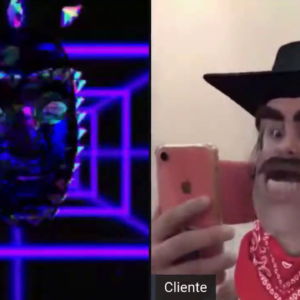
Design and Precarious Work in Digital Platforms (2020)
The Design & Oppression network produced a remote forum theater play on platform work and precarity in the USP design academic week of 2020. Young design students joined the forum to discuss the dystopian future of their profession while considering the dystopian present of other professions. Following the remote forum theater method, the spect-actors wore augmented reality […] - Dec 3, 2020 -

The political body as a fulcrum for radical imagination in metadesign
Angelon, Rafaela; Van Amstel, Frederick M.C. (2020). The political body as a fulcrum for radical imagination in metadesign. In: Proceedings of the III Design Culture Symposium, Unisinos, Porto Alegre, Brasil. - Nov 9, 2020 -
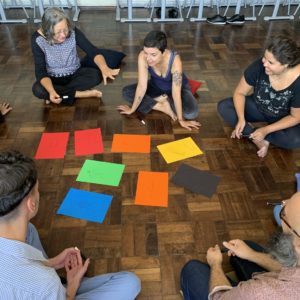 Thinking with the whole body (2020) was a workshop offered in UTFPR teaching seminars. The Technological University usually stimulates its students to think primarily with the brain, ignoring the biological and social support of this organ. Physical activity is restricted to complementary activities, which are isolated from the primary processes of learning, assessment, and knowledge […] - Apr 27, 2020
Thinking with the whole body (2020) was a workshop offered in UTFPR teaching seminars. The Technological University usually stimulates its students to think primarily with the brain, ignoring the biological and social support of this organ. Physical activity is restricted to complementary activities, which are isolated from the primary processes of learning, assessment, and knowledge […] - Apr 27, 2020 -
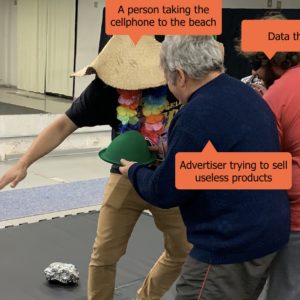
Theater of the Techno-Oppressed
Despite all the hype and hope surrounding them, the technologies developed by universities and research institutions were not necessarily always good for society. Many of those have been instrumentalized to globalize fascism, xenophobia, sexism, and racism. Theater of the Techno-Oppressed is an outreach activity that brings universities closer to their surrounding communities to publicly question, prevent, […] - Apr 6, 2020 -
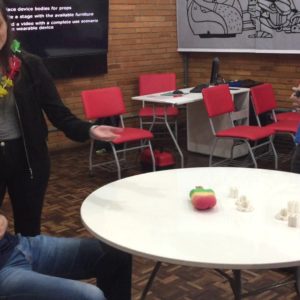 Improvised Videos are short films recorded with smartphones to support a codesign process. They represent everyday scenarios where the design object plays a protagonist role. The interaction with the design object is depicted through variegated film and theater techniques such as enactment, role playing, props, puppets, cuts, and transitions. The main advantage of using video […] - Nov 1, 2018
Improvised Videos are short films recorded with smartphones to support a codesign process. They represent everyday scenarios where the design object plays a protagonist role. The interaction with the design object is depicted through variegated film and theater techniques such as enactment, role playing, props, puppets, cuts, and transitions. The main advantage of using video […] - Nov 1, 2018 -
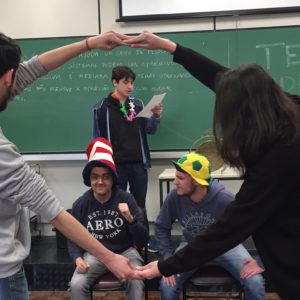 Interaction design, like theater, depends on the performances of human actors to realize its aesthetic expression. Interaction designers create software code much like theater scripts, while users often ignore them and improvise. Drawing from the analogy of Computer as Theater proposed by Brenda Laurel and the Theater of the Oppressed developed by Augusto Boal, this […] - Oct 31, 2018
Interaction design, like theater, depends on the performances of human actors to realize its aesthetic expression. Interaction designers create software code much like theater scripts, while users often ignore them and improvise. Drawing from the analogy of Computer as Theater proposed by Brenda Laurel and the Theater of the Oppressed developed by Augusto Boal, this […] - Oct 31, 2018 -
 Boids is a classic artificial life model proposed by Craig Reynolds to simulate the collective motion observed in flocks, herds, and schools. The word “boid” derives from “bird-oid object,” a term used to describe autonomous agents that behave according to simple local rules rather than centralized control. Instead of following a leader or global script, […] - Feb 14, 2018
Boids is a classic artificial life model proposed by Craig Reynolds to simulate the collective motion observed in flocks, herds, and schools. The word “boid” derives from “bird-oid object,” a term used to describe autonomous agents that behave according to simple local rules rather than centralized control. Instead of following a leader or global script, […] - Feb 14, 2018 -
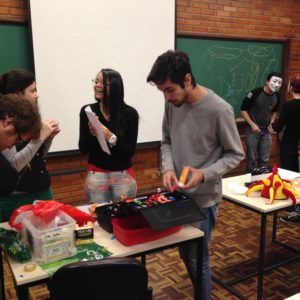
Designing oppressive and libertarian interactions with the conscious body
Gonzatto, R. F., & van Amstel, F. M. (2017, October). Designing oppressive and libertarian interactions with the conscious body. In Proceedings of the XVI Brazilian Symposium on Human Factors in Computing Systems (pp. 1-10). ACM, New York, NY, USA, Article 22, 10 pages. DOI: https://doi.org/10.1145/3160504.3160542 - Oct 31, 2017 -
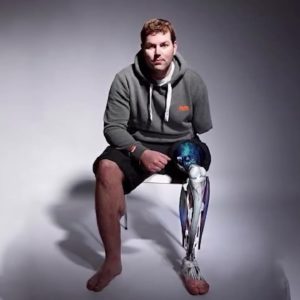
Prosthesis: The Next Level (2016)
Prosthesis: The Next Level (2016) is a speculative design mockumentary about the controversy generated by replacing healthy human limbs for advanced prosthetics in Curitiba, where great advancements in the field supposedly occurred. The mockumentary engaged with Curitiba’s municipal elections, particularly with a mayor candidate’s proposal to recover the city’s position as an international reference on […] - Nov 2, 2016 -
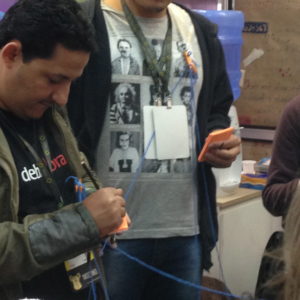
The Conceal and Show Game (2015)
The way Facebook conceals or shows up messages in the news feed is a mystery to most users. Facebook gives the impression that if a user posts a status update, all of her friends receive it in the timeline, but that is not always true. The Edgerank algorithm decides what is shown in the timeline based on three variables: This abstract […] - Jul 31, 2015 -
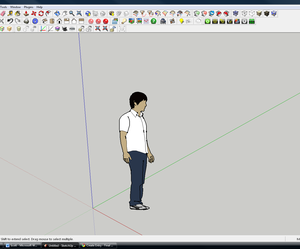
The uses of the human body in CAD
Yesterday I was in Germany for a collaborative meeting with some researchers working with computing and spation reasoning. I presented a poster outlining the challenges of my PhD research. Schloss Etelsen, the venue, couldn’t be better for reflecting about space abstract modeling. Look at the site: Coincidence or not, the 19th century castle had been […] - Jul 1, 2011 -
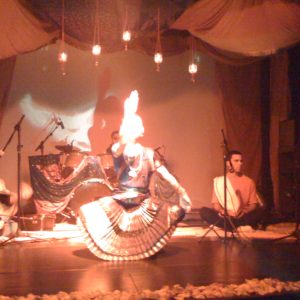
Bharatanatyam with projection mapping (2010)
Projection mapping with a virtual trace of the dancer, with colors and tones changing according to the music. The show led by Caminho Vaikuntha band aimed to present a fusion of Hindustani music and western rock. The projection mapping represented the encounter of the two worlds in the body of the dancer. The projection mapping […] - Aug 24, 2010 -
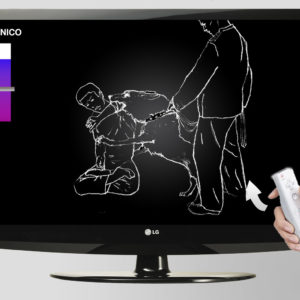
Critical games to reflect on violence
Often, videogames are considered the cause of inadequate violent acts. Traditional media prefer to find an easy culprit instead of discussing the broader problem: the origins of urban violence. The gamer that enacts an inadequate violent act would do it by the influence of videogames. To avoid this behavior, the gamer should not be exposed […] - Jul 7, 2010 -
In my Interaction Design Foundations course, I explain to students that tangible interfaces are becoming widespread because they explore the human body as an input device. This makes the interaction more sociable and affective. In one class, I brought a Dance Dance Revolution pad for our students to experiment with and they took it to […] - Jul 7, 2010